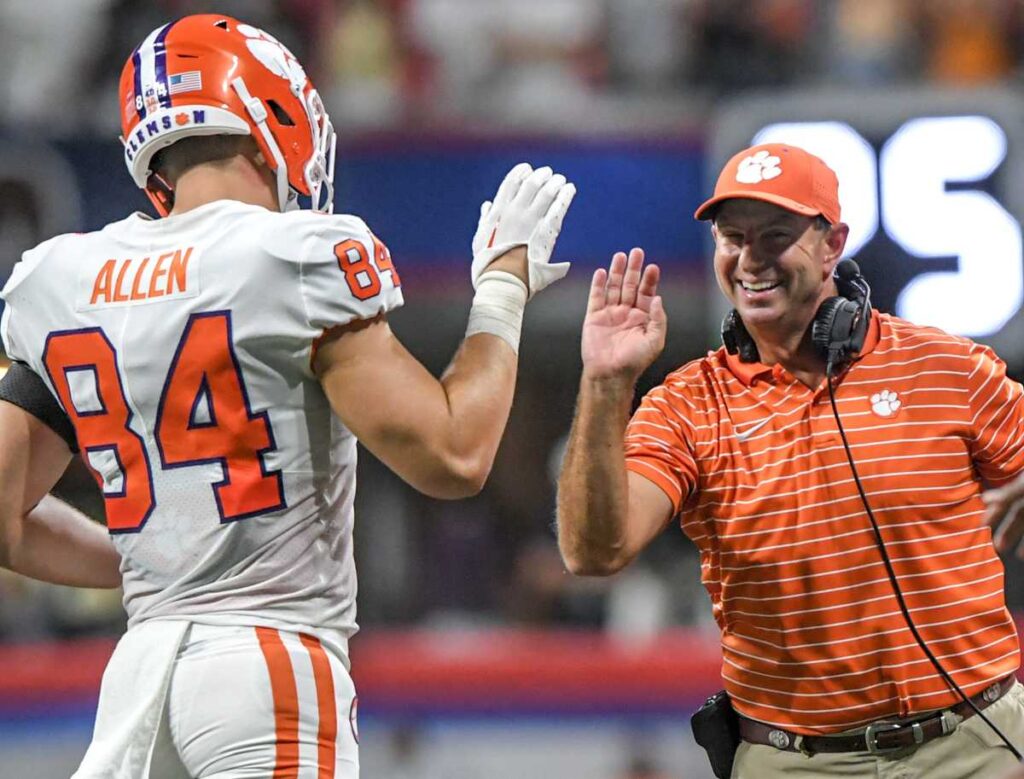On Sunday, Florida State made a resounding statement, reasserting itself as a top contender in the College Football Playoff race by defeating LSU 45-24. Their victory was propelled by a roster bolstered with key players acquired through the transfer portal. Ironically, just the following night, a team that had long occupied the upper echelons of college football while consciously avoiding the portal suffered a loss to Duke.
Clemson’s reluctance to adapt to the evolving landscape of college football is now manifesting in its decline from the sport’s pinnacle. Between 2015 and 2019, under the leadership of Dabo Swinney, the program competed for four national championships, securing two of them. However, since 2020, Clemson has failed to make an appearance in the College Football Playoff. In an era where many programs have thrived by skillfully navigating the transfer portal to fortify their rosters, this status quo is no longer sufficient.
The early stages of the 2023 season have furnished numerous instances of coaches adeptly utilizing the portal to find the ideal players for specific positions, thereby enhancing their current squads. Deion Sanders, in a bold move, transformed a struggling Colorado team into a captivating spectacle overnight. Texas State’s head coach, GJ Kinne, engineered a roster overhaul that paved the way for a stunning upset over Baylor in Week 1. Lane Kiffin has harnessed the portal to bolster Ole Miss. Notably, Florida State’s Mike Norvell has emerged as a benchmark for portal utilization, unearthing hidden talents like Jared Verse from Albany and attracting stars such as former Michigan State receiver Keon Coleman, who made a sensational debut with nine receptions for 122 yards and three touchdowns.
Norvell’s track record with transfers has consistently yielded impressive results, exemplified by Florida State’s three first-team all-ACC players last season, all of whom were transfers. In 2021, seven of the eight All-ACC honorees on the team hailed from the portal.
These are the coaches who recognize and embrace the evolving landscape of college football in 2023. Swinney, on the other hand, has resisted change, paying a steep price for his reluctance to adapt to the times.
The signs of trouble for the Tigers began in 2021 when the NCAA relaxed transfer rules, allowing all undergraduate football players to transfer once and play immediately. Since the portal’s inception in 2018, Swinney has publicly steered clear of it, preferring to build his roster primarily through high school recruiting—a stance that sets him apart from most coaches. Unlike his peers, Swinney’s unwavering commitment to building exclusively through high school recruits has left Clemson with gaps that could have been filled with external talent, potentially enhancing the program.
In today’s college football landscape, Clemson’s approach is proving inadequate, and the
